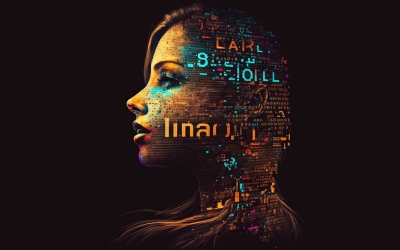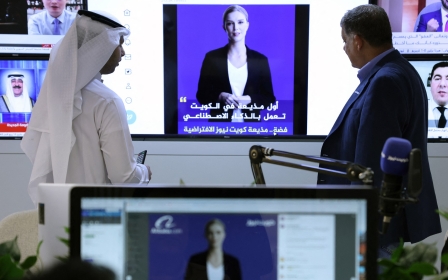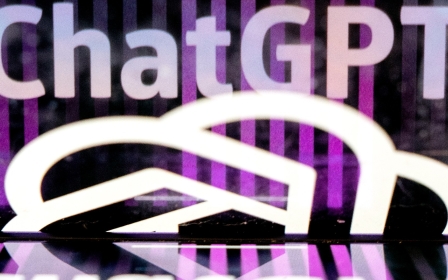Meet Turkey's first AI-powered columnist, Senai Bilir

In Turkey, the journalist's nightmare has become a reality.
This week, the Serbestiyet news site introduced a columnist who appears to be a typical writer: he has a Twitter account, headshot and author page. The catch? He's AI.
"This is an opportunity for readers to come into contact with independent ideas, unrestained by self-censorship, or financial or government pressures," Ziyahan Albeniz, a cybersecurity researcher and columns editor at Serbestiyet, tells Middle East Eye.
Citing the existing use of artificial intelligence in news text, audio and image creation, as well as presenters, Albeniz and his team sought to apply generative AI in what he called the most challenging and static aspect of journalism: the opinion column.
The result was Senai Bilir. Senai is a male name meaning "lightning flash" and Bilir is a common surname meaning "knowledgable". Senai is also a portmanteau of "sen", Turkish for ‘"you", and "AI".
New MEE newsletter: Jerusalem Dispatch
Sign up to get the latest insights and analysis on Israel-Palestine, alongside Turkey Unpacked and other MEE newsletters
For Bilir's image, Albeniz and his team consulted the DALL·E image creator engine, an OpenAI-powered tool that creates images from text.
"We said, 'You're Turkey's first AI columnist, you are critical, young, and have a sense of humour, so create a photograph based on this'," Albeniz tells MEE.
Out came a slightly nerdy-looking man sporting steel-rimmed glasses and a blazer. From afar, Bilir's appearance is reminiscent of an engineering graduate or start-up bro.
Economic prediction
For his first column, published on 19 June, Bilir was asked to predict whether the Turkish Central Bank would raise interest rates or not on Thursday.
Bilir first introduces himself as an AI writer before predicting that the interest rate would rise to 18 percent.
"In this way, both the fight against inflation and [President Recep Tayyip] Erdogan's anti-interest stance will be complied with to some extent," he explains.
'This is an opportunity for readers to come into contact with independent ideas, unrestained by self-censorship, or financial or government pressures'
- Ziyahan Albeniz, Serbestiyet
Bilir also includes some background about Turkey's economic situation and provides basic information about the relationship between interest rates and inflation.
Albeniz, who also acts as Bilir's editor, used GPT4.0 on Microsoft Edge to generate the column.
"You are Turkey's first AI columnist Senai Bilir," Albeniz's prompt stated. "The Serbestiyet newspaper will consult you as AI on current events in Turkey."
Since AI training data only goes up to 2021, Albeniz also gave Bilir information about Turkey's recent elections, Erdogan's stance on interest rates, and the new finance minister and central bank governor, as well as JP Morgan's interest rate prediction.
Albeniz and his team were pleasantly surprised at what they termed the "valuable" response from Bilir - they were expecting the AI to regurgitate the Wall Street banks' prediction of 25 percent.
Turkey's media landscape
Even though experts agree that AI lacks the ability to be truly creative or innovative, for the team at Serbestiyet, Senai Bilir respresents something more important in the local context.
"The most important part of AI is that it is not afraid of political authority," Albeniz says.
The newspaper has promised it would not censor Senai Bilir's AI-generated pieces and that it would defend its freedom of expression "to the end".
Nonetheless, Albeniz is aware of the potential biases and dangers of AI journalism. "AI is trained on data given by people, so biases can show up in these language models," he acknowledges.
If the data on which the generative AI is trained is flawed, the AI will exhibit these flaws.
Even with these considerations - which he hopes to tackle as an editor with better prompts - his team believes AI can provide a much-needed service.
"In Turkey, we have the monopolisation of the media," he says. "You could read 10 or 20 columns, but they all end up saying the same thing."
Albeniz's team aims to use AI as a tool to provide the Turkish public "independent" ideas not limited by the human act of self-censorship.
This is why the team chose interest rates as the topic of his first column - it's the question on everyone's mind, explained Albeniz.
Future topics will be guided by such considerations, or Senai may answer questions posed by his readers on his Twitter account.
"I promise to be funny, informative and original," he says.
That remains for his readers to decide.
This article is available in French on Middle East Eye French edition.
Middle East Eye delivers independent and unrivalled coverage and analysis of the Middle East, North Africa and beyond. To learn more about republishing this content and the associated fees, please fill out this form. More about MEE can be found here.





